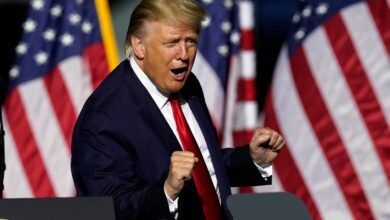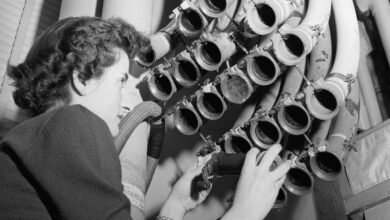Young people are not enthusiastic because politics is all mercenary

R. Bruce Anderson

Summer kind of got a hold of me and took over about two days after we returned from Germany. Upon return, I look forward to a break, however brief, to reflect on the year, find my back deck, and read some things I couldn’t find time for during the academic year.
I had seen that Doris Kearns Goodwin’s new article had been published and, fortunately, at the same time I was struggling with a reading list for my freshman fall colloquium on the American Presidency. Goodwin, a historian whose Pulitzer Prize-winning “LBJ and the American Dream” was (and is) central to any history of the modern presidency, had just released “An Unfinished Love Story: A Personal History of the 1960s.”
“Unfinished…” is both an autobiography and a biography of the Goodwins. Her husband, Dick, was a speechwriter for Kennedy and Johnson, while she served as a presidential fellow in the Johnson White House. It’s a commentary on the presidency that raises some critical points at this crucial moment in this election year, where the vast majority of Americans are completely disinterested, exhausted or disgusted – especially young voters.
The period from 1960 to 1988, it seems to me, was a watershed for the highest office. It contained the presidencies of Kennedy, Johnson, Nixon and Reagan: people on both sides of the aisle who rose and fell in dramatic ways – profound tragedy, great comedy, incredible progress… but in every case, inspiration.
Today, Carter’s disastrous phrase “malaise” comes to mind.
And that is why there is no “youth vote”. The next generation is moribund about politics – and embittered by what politics and policies can accomplish. They never saw it happen.
In his delicate prose, Kearns tells the story of the idea for the Peace Corps – from a speech JFK gave in Ann Arbor to students at the University of Michigan. It wasn’t planned. Kennedy “deviated from his traditional speech,” she wrote.
“How many of you… are willing to spend your days in Ghana?” Kennedy asked the crowd. “…How many of you are willing to work in the foreign service and spend your life traveling the world? On your willingness to do that, not just to serve a year or two in the military, but on your willingness to contribute part of your life to this country, I think will depend on the answer – whether a free society can compete.”
No choices? And those rowdy libertarians? | R. Bruce Anderson
In the days that followed, student petitions exploded first in Michigan and then across the country for Kennedy to turn his spontaneous remarks into reality. The Peace Corps was born.
Imagine being a child growing up in a Democratic home, living through the last gasps of the Eisenhower administration, when JFK called on them to join him in the “New Frontier.” Imagine being a child in a conservative home, enduring the “boredom” of Jimmy Carter when Ronald Reagan burst onto the scene with his call for a massive overhaul of the role of government – and, four years later, inviting us to imagine “Morning ”. In america.”
Johnson’s civil rights bill. Nixon opening China and achieving détente with the USSR. Did the imagination in politics stop with the new millennium?

We need to find America again. “Build Back Better” (go back?), “Make American Great Again” (again?) will not solve it. Where is the vision? Where is the passion? Where is the hope for the future? Where is positive patriotism in creating a better world?
The people I teach, on field trips, learning and thinking, are the future. It’s obvious to me that they have the enthusiasm, interest and pure patriotism that can be turned on like a fire hose when properly motivated. Ideology and party, for these people, matter less than vision.
Once this terrible election is over, we will simply have to find a way to get out of the punishing, negative hucksterism that is so prevalent in American politics at all levels.
R. Bruce Anderson is the Dr. Sarah D. and L. Kirk McKay, Jr. Chair of American History, Government and Civics and the Miller Distinguished Professor of Political Science at Florida Southern College. He is also a columnist for The Ledger and a political consultant and commentator for WLKF Radio in Lakeland.




